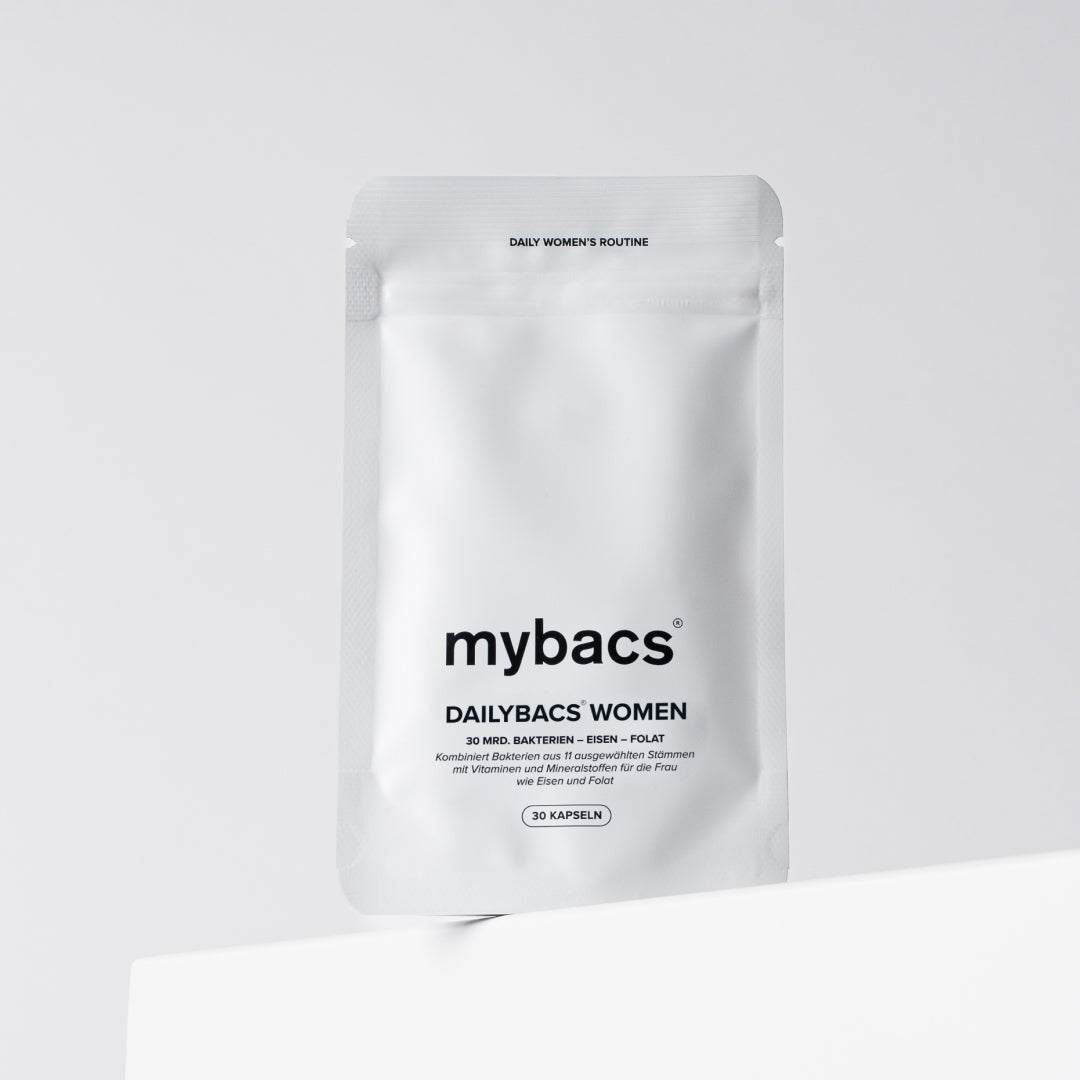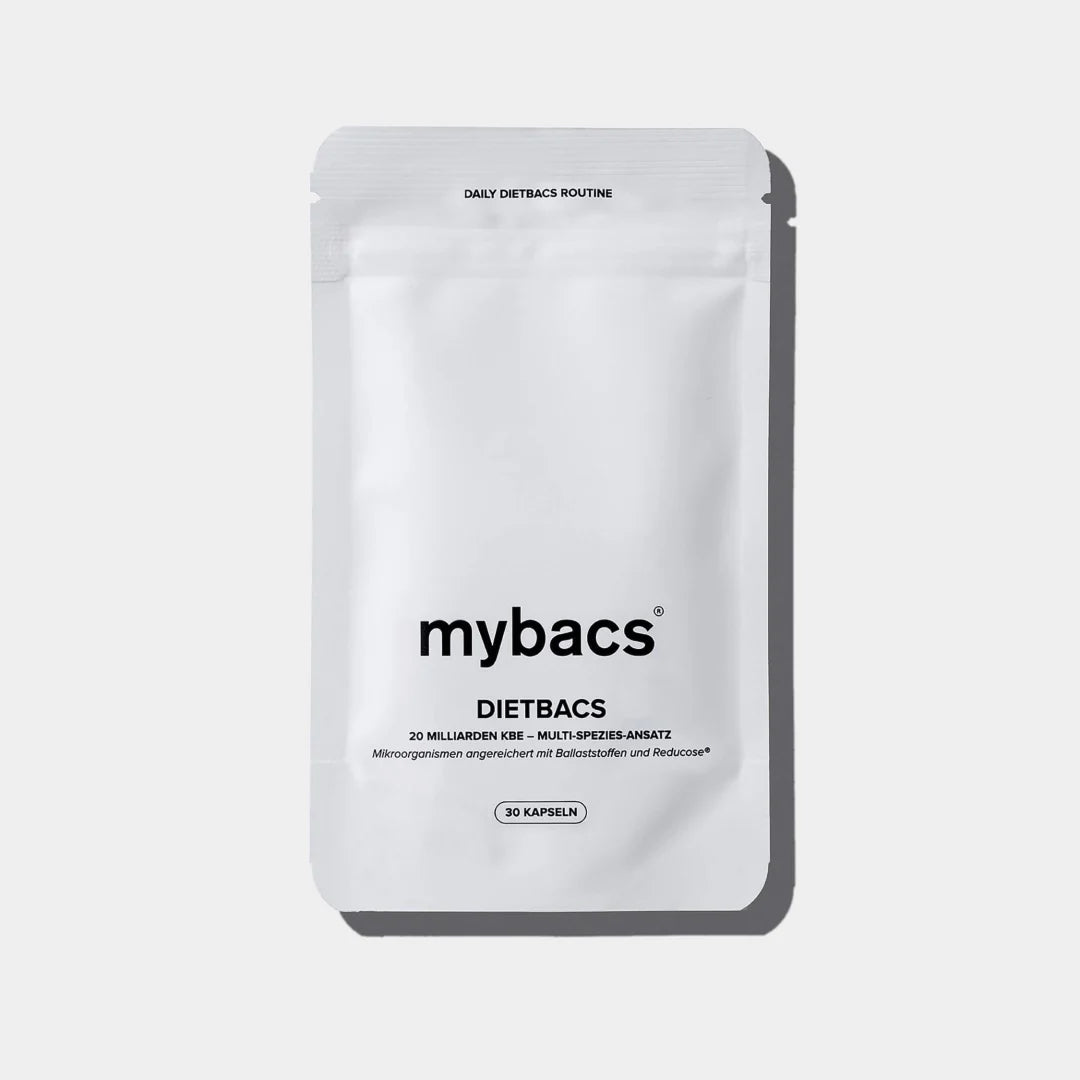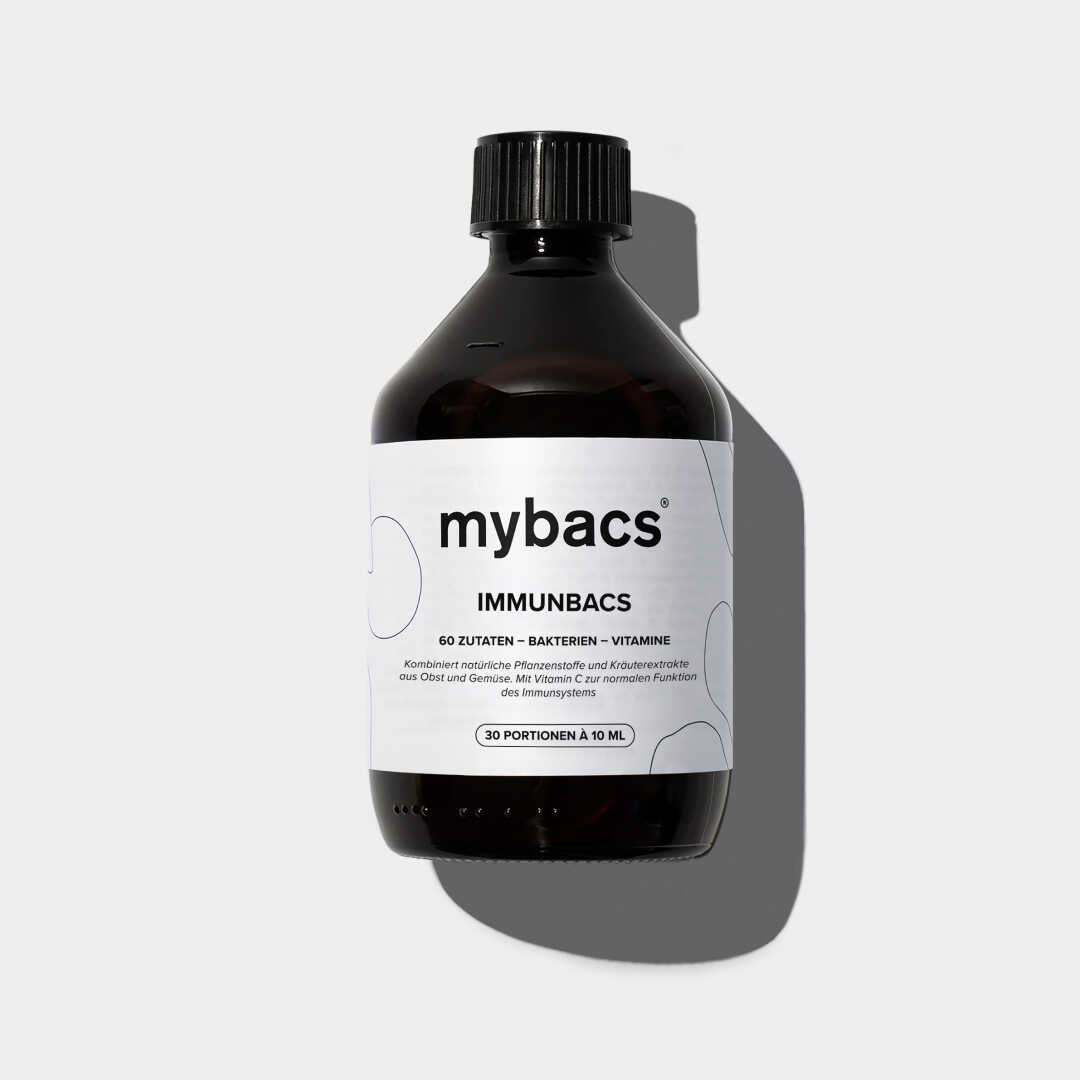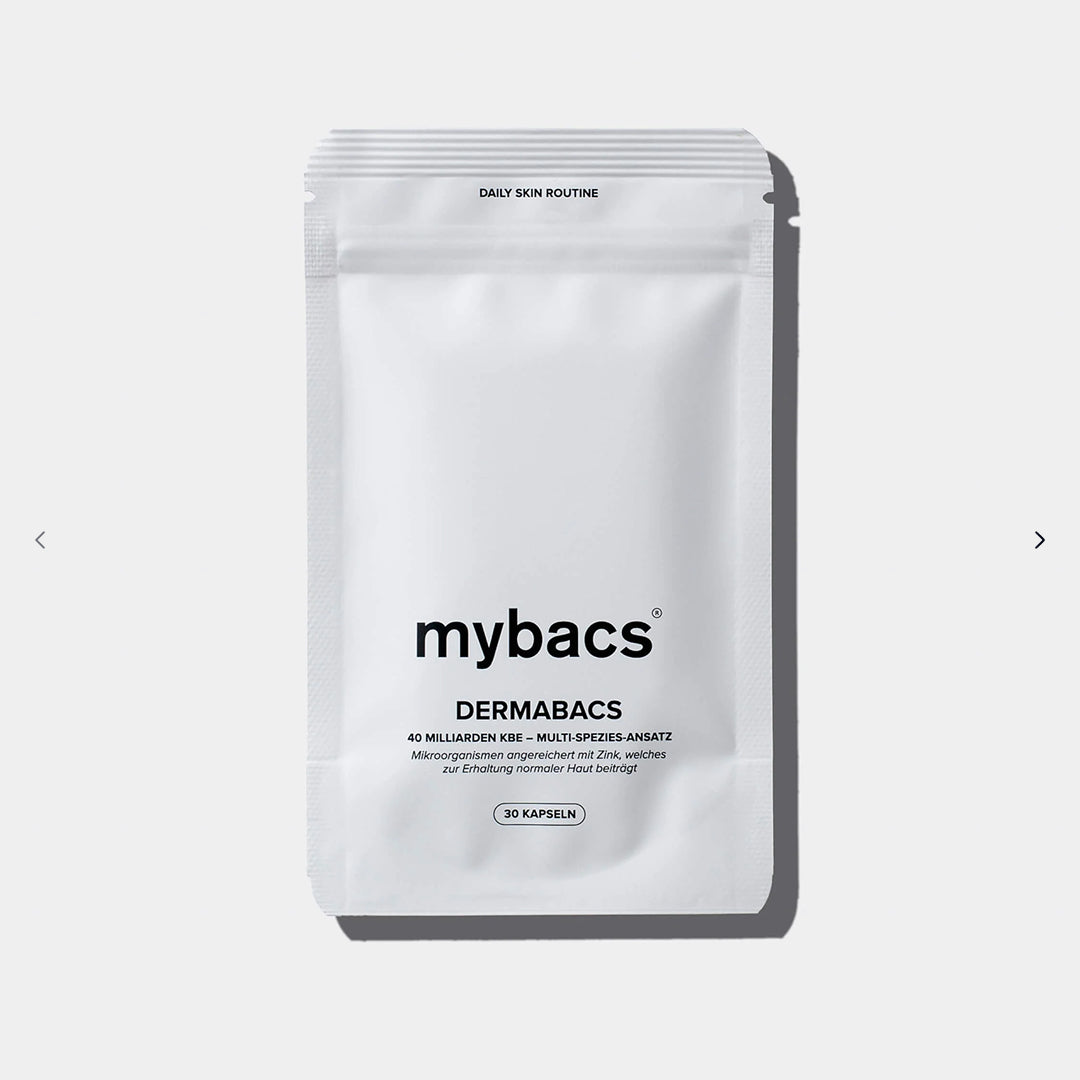With a surface area of approximately 32 square meters, the gastrointestinal tract is the largest contact area of humans with the outside world. On this surface, our immune system has daily contact with all kinds of foreign antigens (such as bacteria), food components, but also our own intestinal flora. The immune system must be able to differentiate between all of these, because the benign intestinal flora has an important function. If the immune system attacks our own intestinal flora , chronic inflammation can develop and damage the organism.
The human intestinal flora includes well over 500 different bacterial species, which, among other things, prevent foreign bacteria from settling in our intestines. This is achieved on the one hand by the high quantity of intestinal bacteria already present, which make it difficult for foreign bacteria to settle due to their density. On the other hand, the human intestinal flora also produces bacteriocins, which weaken foreign bacteria and can also kill them. The intestinal flora is essential for our immune system by both relieving it and supporting its work.
How can you build a healthy intestinal flora?
Consuming probiotics and prebiotics has been proven to help build healthy intestinal flora. But where can you find probiotics and prebiotics? Nutrition obviously plays a crucial role here. Probiotics such as lactic acid bacteria or yeast fungi (the desirable inhabitants of our intestines) can be found in yogurt, kefir and sauerkraut, for example. Fans of Asian cuisine will be happy: miso and kimchi are also probiotic foods.
Prebiotics are non-digestible food components, i.e. fiber. These ensure that the desired bacteria in our intestines are supplied with enough “food” to perform their important functions. Prebiotics are therefore also important for building up the intestinal flora. A lot of “food” for our intestinal flora also means an increased activity of our own bacteria, which can then multiply more easily and get digestion going. Prebiotics are found primarily in plant-based foods such as onions, artichokes, chicory, oatmeal, wholemeal bread, legumes and mushrooms.
Building up intestinal flora in everyday life
Not everyone manages to consume enough probiotics and prebiotics in their everyday life through a balanced diet. All kinds of stimulants such as alcohol, tobacco and other products also impair the functioning of the intestinal flora or damage it. Synbiotic (pre- and probiotics combined) food supplements can offer support here, rebuild the intestinal flora and increase the well-being of the rest of the organism.
The advantage here is above all that it is preventative. You can and should do something for yourself and your health, even if you are medically healthy. How often have we been annoyed by situations in which we only learned better afterwards. If only, if only, bicycle chain...
Build up your intestinal flora correctly - these tips will help you!
The intestines are a subject that people don't like to talk about in public. Taking medication, fast food, alcohol or a lot of stress can all affect our intestinal flora. The resulting symptoms such as flatulence, diarrhea and constipation can be quite unpleasant for us. But there are many more factors that limit the function of our intestines. These include tiredness, food intolerances and allergies , hay fever, neurodermatitis and many other things that are not our responsibility. That's why it's important to always look after your intestines in order to build up a resistant intestinal flora.
-
Sleep: Good and sufficient sleep is essential. Adults aged 18-64 should sleep about 7 hours a day. Children under 18 need more sleep (8-10 hours) and for seniors 5-6 hours of sleep a day is sufficient.
-
Fluid : Drink enough water every day. A human body needs about 30 - 40 milliliters of water per kilogram of body weight, which corresponds to about 2 - 3 liters of fluid per day. Recommended drinks are still water and herbal tea. But there is nothing wrong with a juice spritzer and a coffee, as long as you don't consume large quantities.
-
Food : Ready-made and highly processed foods should always be avoided. These are bad for the intestines due to the high fat and sugar content. Always buy natural products that are free of any additives.
-
Probiotics/Prebiotics : Taking probiotics and prebiotics can have a beneficial effect on gut health. They are available as supplements as well as in regular foods such as kefir, kimchi and yogurt.
-
Food : Eat plenty of fiber-rich foods such as fruits (apples, pears, kiwis), vegetables (broccoli, potatoes, carrots), whole grains and nuts. Foods rich in fiber are good for the intestines and help them eliminate more toxins.
- Antibiotics : Antibiotics are often the cause of diarrhea, intolerances and intestinal inflammation. If taking antibiotics is not absolutely necessary, you should avoid them if possible.






